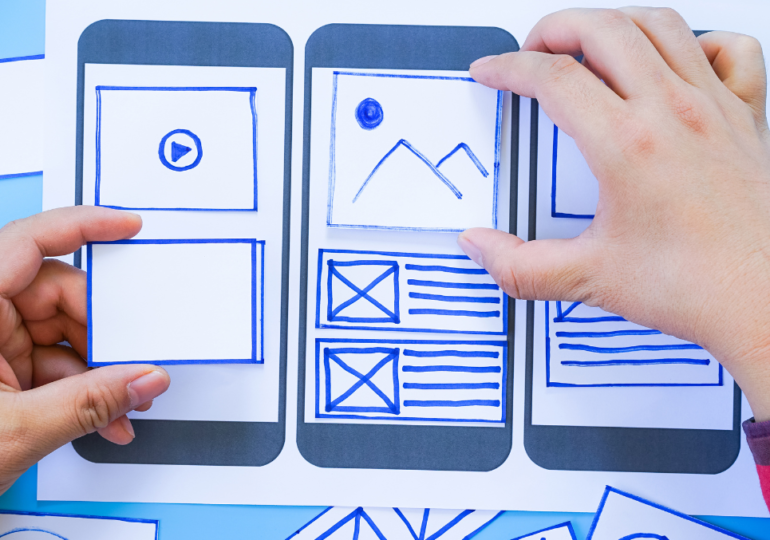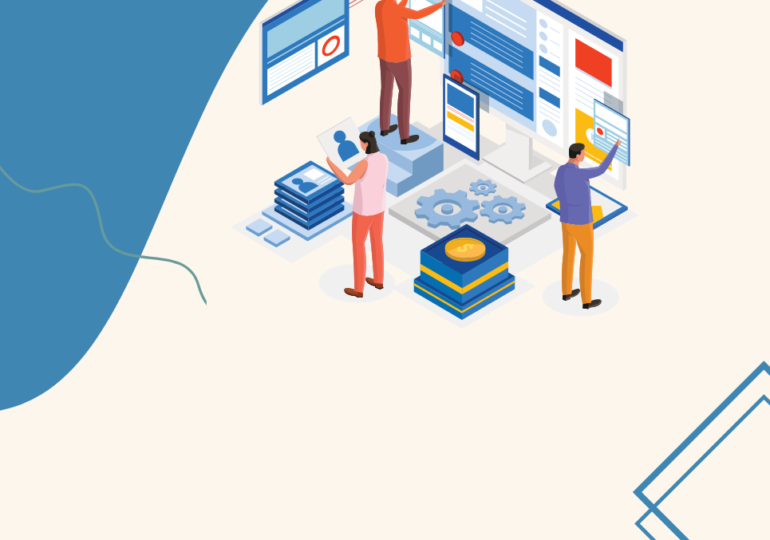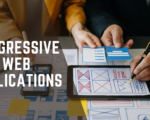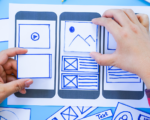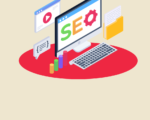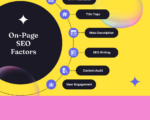How AI is impacting the future of Web Design?

TeCuriosity dubs 2024 as the year of Artificial Intelligence (AI). It has revolutionized virtually everything on the planet. One such development in recent years was its incorporation into web design software applications.
AI’s impact can only be underestimated: revolutionizing how sites are constructed, optimized, and personalized is unmistakable. AI algorithms and machine learning techniques are increasingly being leveraged to enhance user experience.
Furthermore, magical AI tools can streamline design processes, automate tasks, and generate distinctive visual designs.
It doesn’t stop there as AI continues to innovate web design, so we must explore its implications, benefits, and future possibilities in web design.
In this thought-provoking article, we’ll investigate how AI is shaping its future as an essential force in web design.
Let us uncover its transformative power for this industry.
AI and web design: What We Should Expect?
Today’s digital world is forever evolving, and Artificial Intelligence (AI) has had an undeniable effect on web design. No longer confined to science fiction movies, AI now finds a home across industries, including web design.
Artificial Intelligence’s Applications
Thanks to AI-powered tools and algorithms, web designers are now able to streamline their workflow and provide more engaging user experiences while realizing personalized designs at scale.
Enhancing User Experience Through AI
Understanding User Experience (UX)
User Experience (UX) plays a vital part in any website’s success, covering every interaction a user has while exploring a site, from navigational ease and visual aesthetics to functionality and usability.
Web designers prioritize UX improvements as a top priority to ensure visitors enjoy positive and rewarding interactions.
AI Play in Enhancing UX
AI is revolutionizing how designers approach UX optimization. Through AI-powered analytics and data processing, designers can gain valuable insights into user behaviors, preferences, and patterns.
This helps them make data-driven decisions to enhance the user experience.
AI-enabled chatbots and virtual assistants have quickly become indispensable tools for improving UX. These intelligent agents offer instantaneous support, personalized recommendations, and enhanced user engagement for improved satisfaction and engagement.
Automating Design Processes with AI
Traditional Web Design Process
Traditional web design involves many manual processes. From wireframing and prototyping through coding and testing, it consumes both time and effort.
This makes meeting tight deadlines difficult. But thanks to modern technologies like AI, the process can now be automated for greater speed and efficiency.
AI-enhanced Tools and Automation Systems
AI has transformed web design by automating and intelligent tools. For example, AI-powered platforms can generate code and layouts based on predetermined parameters and design guidelines. This significantly decreases the time spent manually coding or prototyping websites.
AI algorithms can quickly process humongous amounts of data to identify patterns and trends, helping designers make data-informed design decisions. This data-driven approach enables designers to craft designs that resonate with their target audiences – ultimately improving website effectiveness and success.
Customization with AI
Personalization in web design is of Extreme Importance
Personalization is an integral component of effective web design. Users have come to expect tailored experiences tailored to meet their specific needs and preferences.
These can lead to higher user engagement rates as well as conversion rates. Personalized websites not only increase engagement and satisfaction but can also boost conversion rates significantly.
Utilizing AI for customized user experiences
AI empowers designers to craft unique user experiences at scale. Leveraging AI algorithms and machine learning, websites can analyze visitor data to deliver personalized content, recommendations, and design elements tailored specifically for each visitor.
From dynamically generated landing pages to tailored product recommendations, AI technology enables websites to adapt and evolve based on user behavior, providing a highly tailored and engaging experience for visitors.
This level of personalization fosters stronger connections between the user and the website, which may lead to increased brand loyalty and user satisfaction.
AI is disrupting web design in profound ways, opening up exciting possibilities for improving user experiences, streamlining design processes, and producing personalized designs at scale.
As AI develops further, web designers should expect even more exciting developments and opportunities as AI progresses further into web design’s future.
AI’s Role in Automation and Efficiency
Automating Repetitive Tasks with AI
Gone are the days when web designers had to spend hours performing tedious, non-creative tasks without much creative input.
Thanks to Artificial Intelligence (AI), mundane tasks can now be automated, freeing designers up for more creative endeavors.
From resizing images to creating code snippets, AI-powered tools and algorithms streamline the design process, saving web designers both time and effort during this creative endeavor.
Enhancing Efficiency in Web Design Workflow
AI can revolutionize web design workflow by providing insights and recommendations gleaned from analyzing user behavior.
From choosing color palettes to optimizing layouts for better user experiences, AI-powered tools act as virtual assistants, helping designers work more efficiently and effectively.
6. Impact of AI on Visual Design and User Experience (UX)
AI-Driven Visual Design Trends
AI plays an integral part in web design. Its increasing influence extends far beyond behind-the-scenes work. AI-powered algorithms can analyze large volumes of design data to detect emerging trends and predict future design directions.
This enables designers to stay ahead of trends while creating visually pleasing websites that resonate with modern audiences.
Enhance UI/UX Experience through AI-driven Recommendations
Artificial Intelligence’s impact on user interface/experience (UI/UX) goes well beyond mere aesthetics.
By analyzing user data and behavioral patterns, AI-powered recommendation systems optimize UI/UX to deliver tailored experiences tailored to each visitor. This includes suggesting relevant content to anticipate preferences and ensure maximum visitor satisfaction.
Challenges and Ethical Considerations of AI for Website Design
Ethical Implications of AI in Web Design
While AI provides many benefits to web design, it also raises ethical considerations. For instance, using it to generate deepfake images or manipulate user data for targeted advertising could present ethical difficulties.
These ethical dilemmas must be managed in order to avoid potential harm. Thus, one must use AI tools appropriately and transparently. Designers must work responsibly when using AI so as not to cause potential damage or harm.
Guaranteeing Accessibility and Inclusivity in AI-powered Designs
Accessibility and inclusivity should also be carefully considered when developing AI-powered designs. AI algorithms must be trained on diverse datasets to reduce biases or exclusionary effects.
Additionally, accessibility features and thorough user testing are crucial steps toward creating web designs accessible to all.
Trends and Potential of Artificial Intelligence in Web Design
Emerging Technologies and AI Integration
AI’s rapid progress and combination with other emerging technologies opens up exciting new avenues for web design. From virtual and augmented reality interfaces to natural language processing-powered chatbots, the future holds great promise for AI-powered web design.
TeCurious Take: Predictions for the Future of AI in Web Design
It is evident that AI will continue to play an inseparable role in web design and its industry. AI’s influence will continue to expand as its ability to automate processes increases.
Overall, AI is revolutionizing this industry in an astounding manner. However, ethical considerations and challenges associated with its implementation are crucially important. Technology advances are opening up exciting trends and possibilities for AI in web design, and web designers should embrace it responsibly to create user-centric digital experiences that truly stand out from the crowd.
It’s safe to say that now is an exciting time to be part of such a rapidly evolving field!
Fuel your tech fascination! Get ahead with TeCuriosity’s newsletter. Stay in the know, stay ahead. Subscribe for your regular tech enlightenment!
FAQ
AI is revolutionizing web design by analyzing user behaviors, preferences, and interactions in order to deliver personalized content and recommendations tailored specifically for them.
AI helps designers understand user needs better while creating intuitive interfaces for enhanced usability and engagement. AI chatbots or virtual assistants also offer real-time assistance, which enhances satisfaction levels as well as the overall experience for end users.
No, AI does not represent an imminent replacement for web designers. Although AI automates certain tasks and streamlines processes, human creativity and expertise remain invaluable in web design.
AI serves as an indispensable resource in aiding designers in creating insights, optimizing workflows, and increasing efficiency, while web designers add unique perspectives, aesthetics, and problem-solving abilities that AI cannot replace.
Ethics are paramount when designing websites using Artificial Intelligence (AI), including protecting user privacy, avoiding discriminatory recommendations generated by AI systems, and maintaining accessibility for people of all abilities.
Designers must remain aware of potential ethical implications when using AI technologies ethically and inclusively.
AI offers endless potential in web design. AI promises to further boost personalization, create hyper-customized user experiences, and craft highly tailored designs. In addition, it may automate complex design tasks while facilitating seamless collaboration between designers and AI systems, as well as incorporate emerging technologies like AR/VR into website designs.

